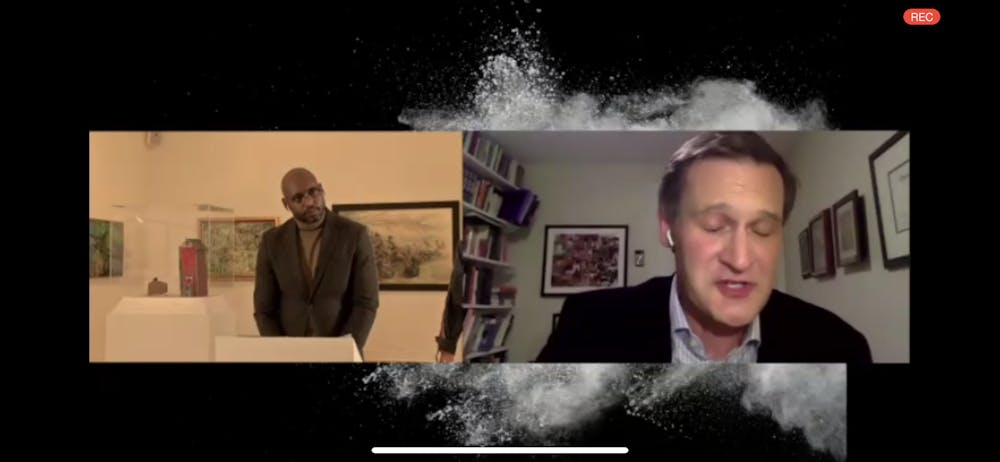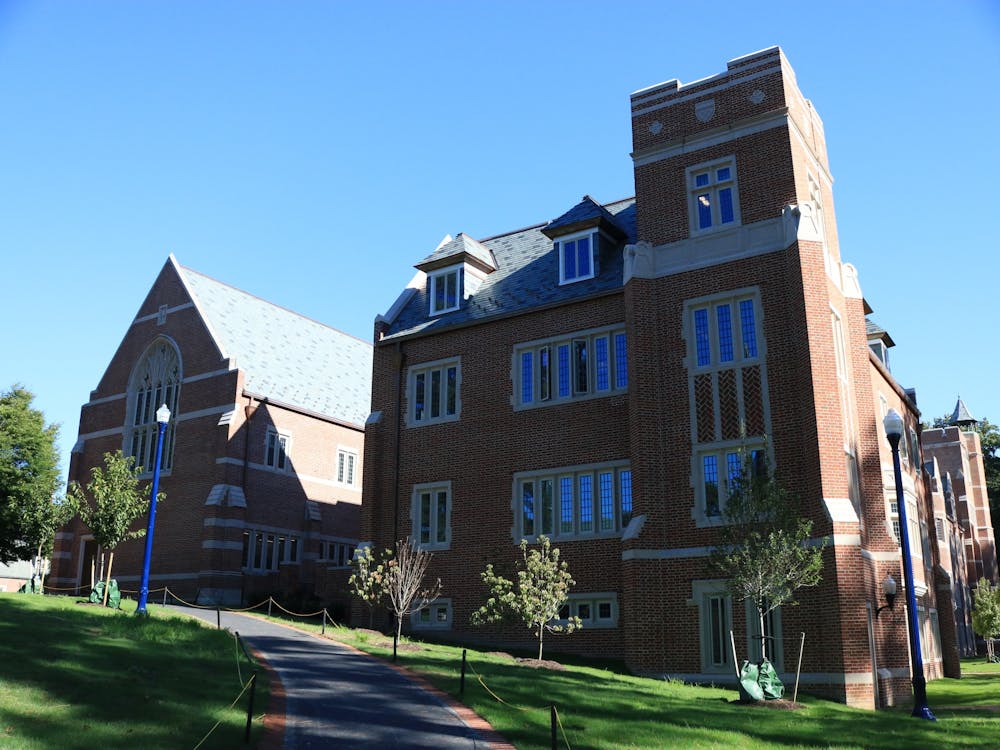Former Charlottesville Mayor Michael Signer discussed his perspective on interpretations of the first amendment rights on Sep. 23 as part of the University of Richmond School of Art and Sciences’ 2020-21 webinar series. Signer was mayor of Charlottesville during the Unite the Right rally that took place on Aug. 11-12, 2017.
This was the first installment of the series, which is titled "Responding to Two Pandemics | COVID-19 & Racism." Patrice Rankine, dean of the School of Arts and Sciences, hosted the webinar from the Harnett Museum of Art in a question and answer format.
After detailing Charlottesville’s long history of racism, Signer discussed events in 2017 that led up to the Unite the Right Rally. Signer originally thought that the Unite the Right rally in Charlottesville was an anomaly, he said. Since then, he has realized that it was the first in a trend that would spread across the country, Signer said in the interview with The Collegian before the webinar.
“I think in 100 years Charlottesville will be a key moment for the emergence of mainstream violent white nationalism in the country,” Signer said in the interview before the webinar, later in the interview saying that Trump’s handling of the rally was the “first real reveal of his dependence on white nationalism for his political ideology and his coalition.”
In the webinar, Signer supports the First Amendment but has quarreled with the case law concerning the amendment, he said. Referencing John Stuart Mills’ idea of a marketplace of ideas in America, Signer said the U.S. differed from countries such as Germany where pro-Nazi speech is outlawed.
Rankine mentioned the recent breaking news out of Louisville, Kentucky, about the indictment of an officer in the case of Breonna Taylor’s killing.
“Similar to Charlottesville, these protests began with demonstrations and public outcry ostensibly protected under the Constitution's First Amendment: the right to exercise free speech; the right of the people peaceably to assemble," Rankine said.
In the U.S., Signer said only a deliberately planned unlawful act could be banned, which Signer thought is unreasonable. Signer was not allowed to talk about institutions such as the Black Lives Matter movement and the arrival neo-Nazis before the Unite the Right Rally, as it would be seen as discussing the content of free speech, he said in the webinar.
Northam’s emergency ban of firearms for the Second Amendment rally in Richmond earlier this year, which was upheld by the State Supreme Court, would not have been upheld without the Unite the Right Rally in Charlottesville, Signer said.
Signer called for common-sense rules to avoid more situations like the Unite the Right Rally in Charlottesville. Courts need to consider things like how expensive a rally is for a city to host and the likelihood of violence that may be hidden by planners in secret online gaming sites, Signer said.
Questions from the audience during the webinar were read by Martha Wright, assistant curator of academic and public engagement.
One question asked whether Signer thought violence diluted the protests going on around the U.S. He responded that violence was not the answer and urged any students who were listening to fight through institutions and policy.
Enjoy what you're reading?
Signup for our newsletter
When answering a question about whether privilege comes from economics or race, Signer said there were different kinds of unearned power and injustice. He said economic privilege was real but also acknowledged his white privilege.
When asked about how to reconcile free expression and inclusion on college campuses while protecting academic freedom, Signer said he thought "bad ideas" should be able to be expressed because they would be condemned by market and institutional practices.
Signer cited the wave of progressive candidate victories after the Unite the Right Rally in Charlottesville as an example of the condemnation of forces such as white nationalism.
The next webinar in the series, "Academic Disciplines: What Stays or Goes," will happen on Oct. 14.
Contact newsletter director Eileen Pomeroy at eileen.pomeroy@richmond.edu.
Support independent student media
You can make a tax-deductible donation by clicking the button below, which takes you to our secure PayPal account. The page is set up to receive contributions in whatever amount you designate. We look forward to using the money we raise to further our mission of providing honest and accurate information to students, faculty, staff, alumni and others in the general public.
Donate Now



